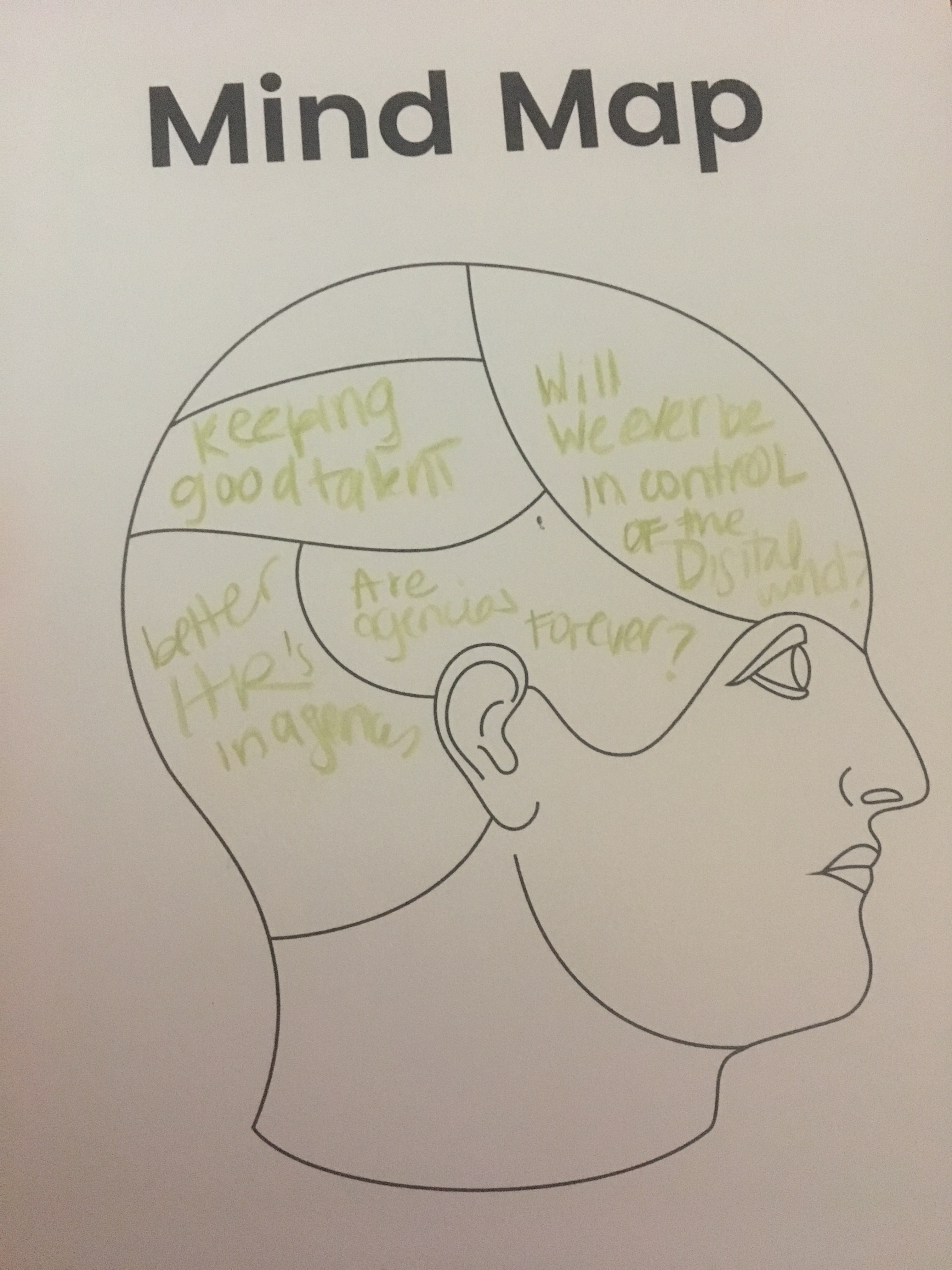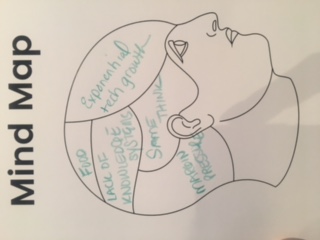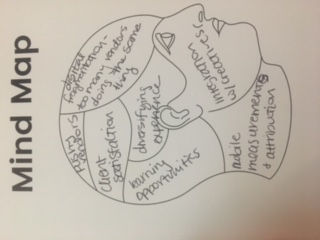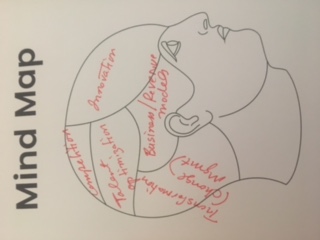Save 50% on a 3-month Digiday+ membership. Ends Dec 5.
‘Are we even relevant any more?’: The biggest things on the mind of agencies today

With the pace of digital only mounting, so too are the worries on agencies’ minds. Clients are only getting more demanding even as the margins are shrinking; brands and publishers themselves are setting up agencies of their own; technology companies are steadily inching into agency turf, too; and the hunt for talent is getting as critical as ever.
At the Digiday Agency Summit in Phoenix, Arizona, this week, attendees from agencies across the country were asked to jot some of their biggest challenges down on mind maps — visual representations of how much real estate certain challenges are taking up in their heads. We asked a few of them to elaborate on the biggest issues bugging them.
Their answers, edited for clarity, are below:
The talent drain

“I have seen both colleagues and people I know in other agencies starting to make that trade and go to in-house agencies at brands or publishers. Until now, brands needed agencies to facilitate the shift to digital, but with things moving so fast, I don’t know if agencies are even relevant any more. Am I innovative enough to even necessitate a spot in the client’s paycheck?”
Squeezing margins

“Margin pressure is what drives all the other problems agencies face. It’s hard to keep talent, it’s hard to innovate, and it’s hard to create processes and tools to address the exponential growth of technology when you’re constantly bogged down by margin pressure. At the end of the day, we’re in business to make money, and we’re not getting paid for the work we do, period.”
Working with data

“So much of what we’ve done for a long time is deliver results. But now delivering results is only half of the job; delivering intelligence is the other part of the job. Clients don’t just want their own data, and want it quickly and sustainably, but also want the insights associated with that data. It’s shifting the way we focus our team’s work. We have one client that we do this weekly audit of intelligence for: These are the things that we did, these are the things that we learned. Clients today want that intelligence today along every step of the way.”
Digital fragmentation

“A lot of clients have moved money into digital with the hopes of engagement. Engagement, however, is eventually supposed to lead to business impact, and we haven’t come far enough where we can actually demonstrate that. Clients are still struggling to see the value of investing in digital, in that we’ve actually moved their business forward. The problem is digital is fragmented in itself, and when we take that money we do ourselves a disservice by further fragmenting it out. So instead of a 40 percent digital budget, we have a whole bunch of pockets of 5 percent and 10 percent. And when you do that, it’s really hard to measure impact.”
Ad position: web_incontent_pos1
Rethinking the agency model

“We need to rethink the way agencies have worked in the past. We need to think about how we make money, how we price things. The pay-for-performance model is something we need to explore. If I am working with one of the biggest brands in the world, and I create a campaign that’s super successful, why don’t you pay me more for it? And if I create a campaign that doesn’t work, why don’t you pay me less for it? Competition is so high, that at some point in the digital world, there has to be some accountability.”
More in Marketing

Ulta, Best Buy and Adidas dominate AI holiday shopping mentions
The brands that are seeing the biggest boost from this shift in consumer behavior are some of the biggest retailers.

U.K. retailer Boots leads brand efforts to invest in ad creative’s data layer
For media dollars to make an impact, brands need ad creative that actually hits. More CMOs are investing in pre- and post-flight measurement.
Ad position: web_bfu